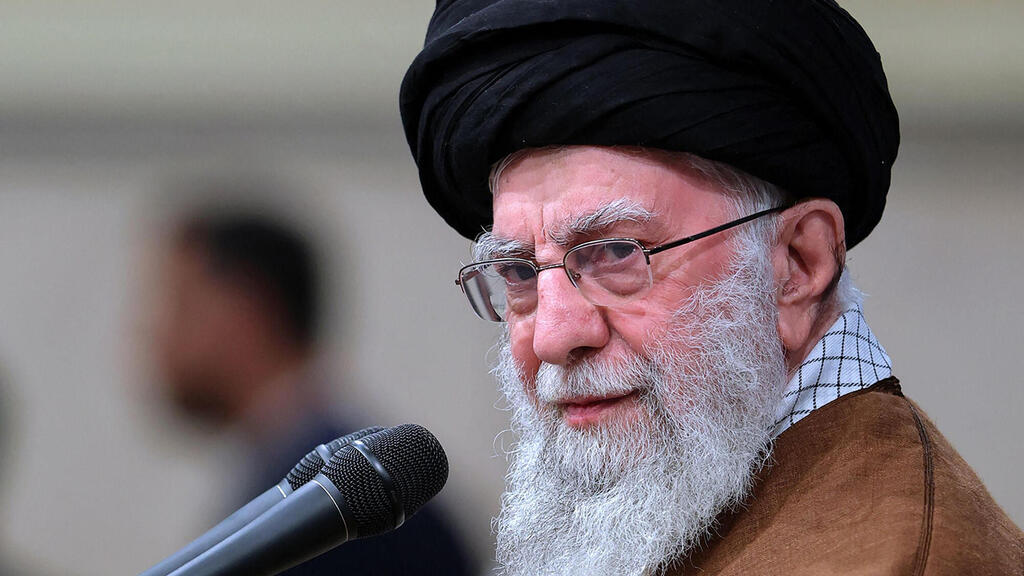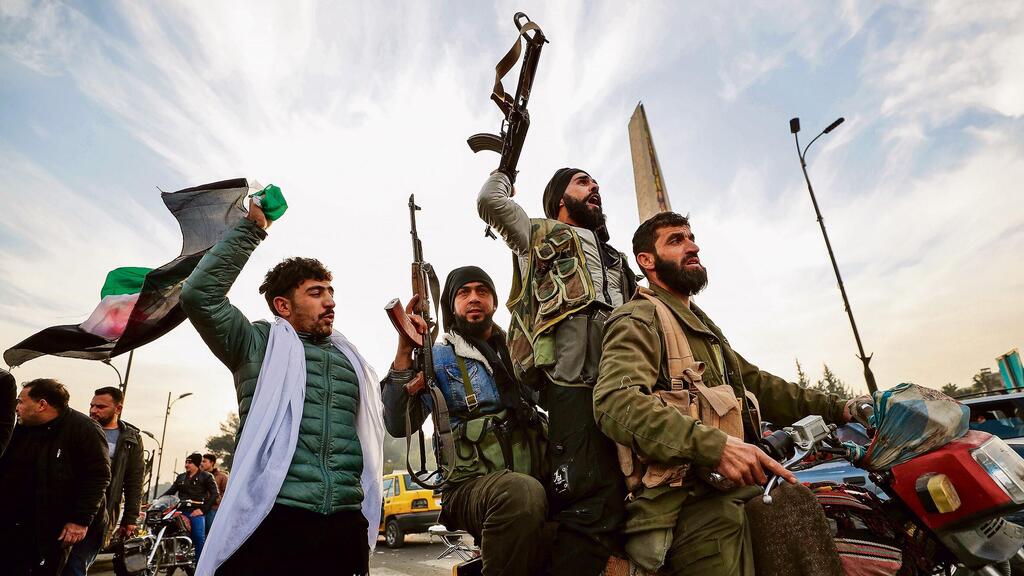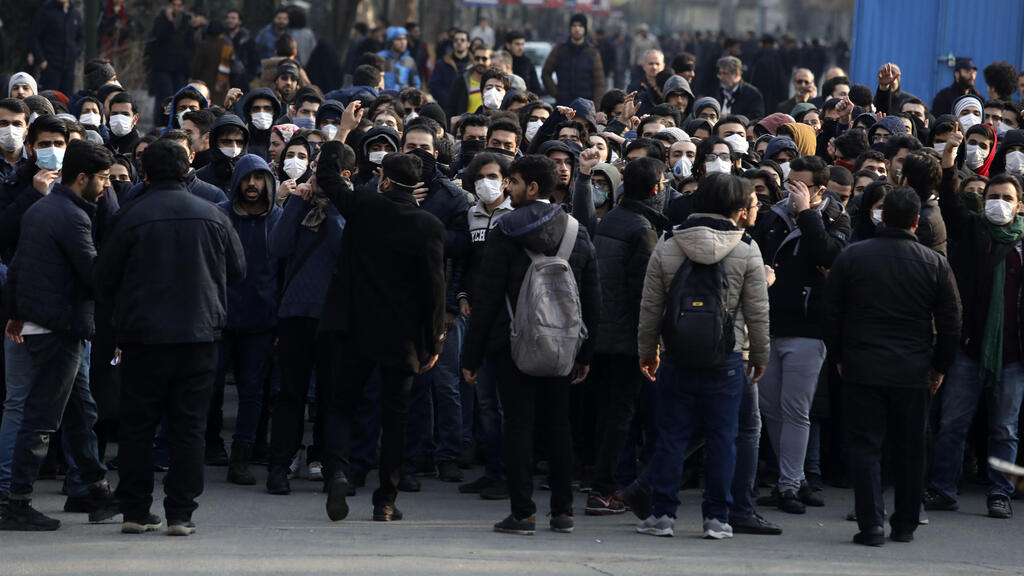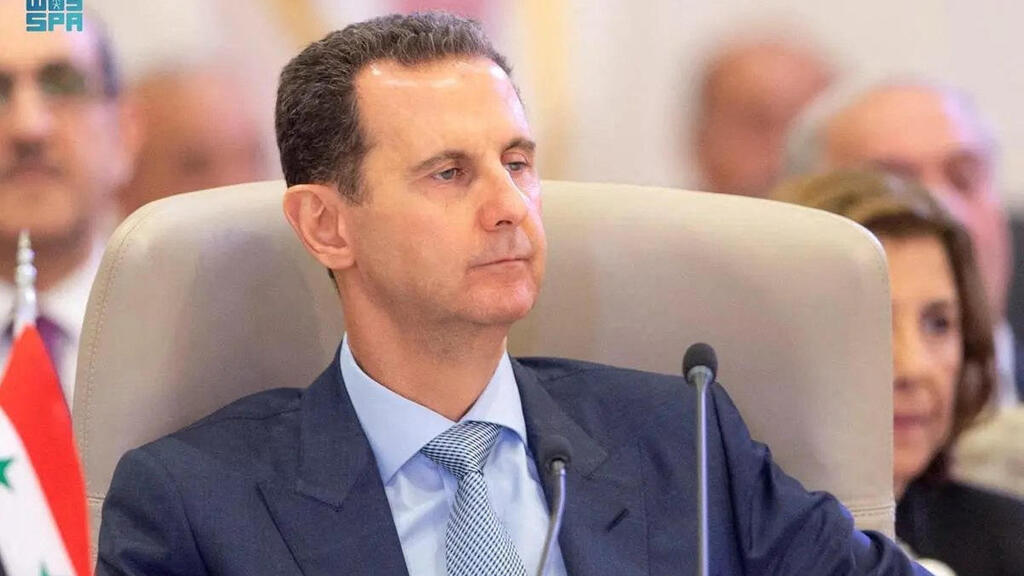Many Iranians were taken aback by instances of vandalism and violence during the wave of protests that swept through Iran in late 2017 over the country's worsening economic situation. A social media campaign under the slogan "Iran isn't Syria" warned protesters against escalating the situation into a civil war.
Iranian human rights activist and journalist Mehdi Mahmoudian addressed the fears among many Iranian regime critics about revolutionary change leading to political chaos this week.
In an opinion piece penned following the collapse of the Bashar Assad regime, Mahmoudian argues that recent events in Syria prove that fears of Iran "becoming Syria"—slipping into civil war and fragmentation in the event of regime change—are exaggerated.
He added that the protracted Syrian civil war and the country's descent into chaos resulted from foreign involvement and Assad's long-standing resistance to essential reforms and an orderly transition of power.
Therefore, Mahmoudian asserted, there was no need to fear regime change in Iran or its "Syrization," as fear of the potential toppling of the regime only exacerbated the situation.
It’s important to note that Iran's circumstances differ significantly from Syria's in recent years. Over a decade of civil war has left Syria a failed state, fragmented and divided into zones of influence controlled by foreign-backed forces, with its economic and security situation deteriorating.
While deep social processes and mounting pressures from both internal and external sources present a significant challenge to the Iranian regime that could, over time, threaten its position and stability, the regime has so far successfully managed to suppress waves of protests in recent years, maintaining both its internal cohesion and its determination to uphold its fundamental principles.
Nevertheless, there's no doubt that Iran is also learning lessons from the collapse of Assad’s regime and its possible implications for the Islamic Republic's survival and stability.
Iran saw an increase in public discourse about the lessons to be drawn from the events in Syria in recent days. Political commentator and regime critic Sadegh Zibakalam attributed the rapid collapse of Assad’s regime to its loss of popular support among the vast majority of Syrian citizens.
Get the Ynetnews app on your smartphone: Google Play: https://bit.ly/4eJ37pE | Apple App Store: https://bit.ly/3ZL7iNv
He acknowledged that the circumstances in Iran are very different from those in Syria and that there was still a noticeable willingness among regime supporters to rally behind it.
However, he stressed that the most crucial lesson Tehran must learn from Syria is that a regime that loses public support can't rely on its military power or foreign backing to ensure its long-term survival.
Voices within Iran's conservative camp have also stressed the need to bridge the gap between the regime and the public and to enhance social solidarity via improving economic conditions and addressing public demands. Tehran City Council Chairman Mehdi Chamran argued, in light of events in Syria, that the lesson from Assad’s fall is the importance of listening to citizens and respecting their wishes—not just in words but in actions.
Meanwhile, calls have intensified to freeze or postpone the implementation of the hijab law recently passed by Iran's parliament this week. The law imposes severe sanctions, including heavy fines and denial of social services, on women who fail to comply with hijab regulations.
Critics of the law, including President Masoud Pezeshkian and several senior clerics, warned that enforcing the law at this time could further widen the gap between authorities and the public and amplify public criticism. There have also been calls to fulfill the president’s promise to lift some restrictions on social media platforms.
However, Iran’s Supreme Leader Ali Khamenei this week addressed developments in Syria, delivering an entirely different message amid calls to ease tensions between state authorities and the public.
In a speech in Tehran, Khamenei declared that the lesson from Syria’s events is never to ignore or underestimate the enemy. His remarks reflected his long-standing tendency to blame domestic challenges on external actors, allegedly aided by internal adversaries.
During the recurring waves of protests that have swept through Iran in recent years, Khamenei consistently claimed that Western countries, especially the U.S., are responsible for efforts to undermine his rule.
Khamenei’s speech offered little reason for optimism regarding the regime's willingness to ease the civil and political repression that has intensified in recent years, as evidenced by an upsurge in executions.
It appears that the Iranian leader currently prioritizes preserving his ideological support base—narrow as it may be—over responding to citizens' demands and addressing their grievances.
Past experiences have shown that while increased repression may help authorities handle internal challenges in the short term, it could, over time, further deepen the regime’s legitimacy crisis and fuel radical trends among the public.
In any case, the dramatic developments in Syria will continue to attract considerable attention in Iran, as the question of regime change re-emerges amid Tehran’s weakening position, the decline of the Shiite axis, the sun setting on the current leader’s rule and the Donald Trump’s return to the White House.
 Raz Zimmt
Raz Zimmt Brian Hook, who oversaw the Iran portfolio in Trump’s previous administration, recently said that the upcoming Trump administration doesn't aim for regime change in Iran.
Still, preparations are already underway for the reimplementation of a maximum pressure policy both inside and outside the Islamic Republic, which could create an opportunity to challenge the regime.
- Dr. Raz Zimmt is a senior researcher and Iran expert at the Institute for National Security Studies (INSS) and the Alliance Center for Iranian Studies (ACIS) at Tel Aviv University.






